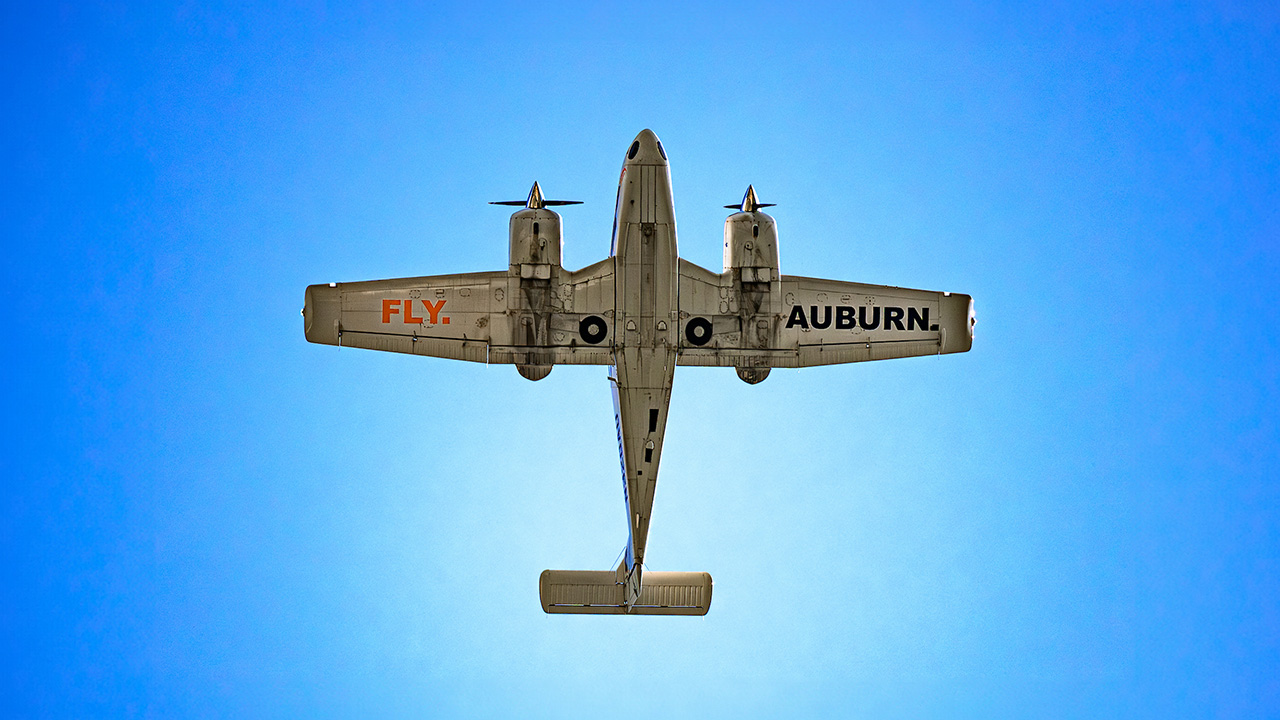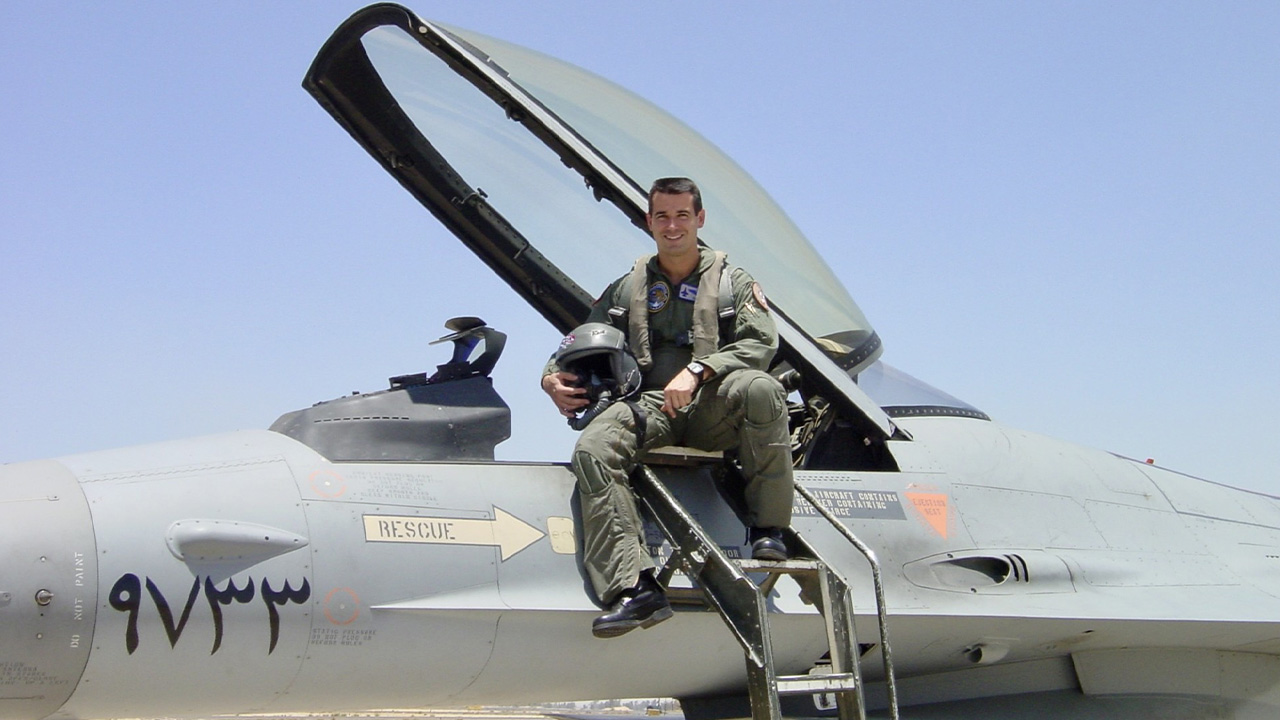content body
Auburn University has been soaring to new heights since it began offering aviation administration courses in the 1920s.
The university purchased the local airport in 1939 to train pilots for World War II. After the war, flight instruction continued and has evolved into one of the longest continually operated flight programs in the country.
“We don’t train pilots here, we train aviators. We’re training people who go into the cockpit who are cognizant of the industry and of the forces that make an industry successful.”
Today, the School of Aviation in the College of Liberal Arts offers undergraduate degrees in aviation management and professional flight, with a proud alumni network of more than 4,000. In collaboration with the Horst Schulze School of Hospitality Management in the College of Human Sciences, the school also offers an undergraduate certificate in aviation hospitality management.
Instruction and flight training come from a highly accomplished and diverse team, including former U.S. Navy flight officers Willie D. Billingslea and David Tidwell; former U.S. Air Force fighter pilot Rebecca Baughman; Kim Wade, the former director of operations at Atlanta’s Hartsfield-Jackson International Airport; and Jill Glidewell, who spent more than 40 years flying with the Air Force and Delta Air Lines.
Recently named director of flight education, retired Air Force colonel David Bottomlee, brings more than 100 combat missions and thousands of hours of fighter jet instruction to the Plains.
While Auburn Aviation does produce skilled pilots, its mission goes far beyond the cockpit.

The number of female students enrolled in Auburn's School of Aviation has exceeded the national average for more than a decade, and today, it’s three times higher.
As its former director James Witte once said, “We don’t train pilots here, we train aviators. We’re training people who go into the cockpit who are cognizant of the industry and of the forces that make an industry successful.”
The professional flight major provides extensive flight training and certifications, while aviation management focuses on the business and operational aspects of the industry.
Both tracks can lead to diverse careers in aviation and remain popular among students, with more than 1,000 currently enrolled. Notably, the number of female students has exceeded the national average for more than a decade, and today, it’s three times higher.
In 2017, as the university commemorated 125 years of women at Auburn, it had its first entry in the Air Race Classic — an annual cross-country event for female pilots. Auburn teams have competed every year since.
Students benefit from a vibrant aviation community, with organizations such as the War Eagle Flying Team, Striped Wings Student Ambassadors, Women in Aviation and the Aviatrixes College Wing of The Alabama 99s Chapter of The Ninety-Nines.
Home field advantage
The Auburn University Regional Airport has grown into a bustling hub of aviation activity, fueled by the rising number of student pilots and fleets of private and non-commercial aircraft.

The airport recently broke ground on a new 109-foot-tall air traffic control tower which will enhance safety measures and operational efficiency and alleviate air traffic congestion.
To accommodate increased traffic — in the air and on the ground — the airport has expanded its facilities, adding hangars and a new terminal building and lengthening runways. Construction of a new air traffic control tower begins this fall.
“When you have 95,000 flying operations a year, it gets to be a very busy flying environment,” said Bill Hutto, airport director, “and the tower will allow us to sequence and space the aircraft properly.”
Support from Delta Air Lines, The Delta Air Lines Foundation and the Jacobson Family Foundation resulted in a $6.2 million grant that established endowed professorships and funded the Delta Air Lines Aviation Education Building — Auburn’s first facility dedicated solely to aviation education.
Since 2019, students have trained in the 23,000-square-foot building, which features enhanced classrooms, debriefing rooms and flight simulators, including an Airbus 320 commercial airline simulator.
Auburn maintains strong industry ties through pilot recruitment programs at Delta, Southwest Airlines and United Airlines, offering students hands-on training and career opportunities while helping address the nationwide pilot shortage.
A partnership with Southern Union State Community College aims to tackle the aviation mechanic shortage. A newly constructed hangar near the Delta building will support the community college’s Airframe and Powerplant School, expanding Auburn’s impact on aviation education for Auburn and Southern Union students.






